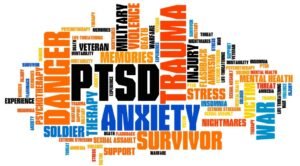Alzheimer’s Disease: What Is It Exactly?
Alzheimer’s disease overview:
Alzheimer’s Disease[/caption]Alzheimer’s disease is the number one cause of dementia in the United States, by some estimates affecting as many as 4 million seniors. Alzheimer’s disease was named after a German physician named Dr. Alois Alzheimer who first noticed changes in the brain tissue of a woman while he was performing an autopsy, who died of unusual mental illness in 1906. The physiological abnormalities that he noticed are now referred to as plaques and tangles which are now considered to be some of the defining characteristics of Alzheimer’s disease.
Alzheimer’s disease is a progressive disorder characterized by the deterioration of mental faculties due to the loss of nerve cells as well as the connections between them. Alzheimer’s disease is also frequently accompanied by changes in behavior and personality. The disease process and its course are relentless, although the rates of deterioration vary from individual to individual. Contemporary research suggests that on average a patient with Alzheimer’s disease survives three to five years after the initial diagnosis, a survival estimate which is much shorter than previously reported.
Progression of Alzheimer’s disease:
Alzheimer’s disease is defined by its slow advancement through three general symptomatic stages which range from mild forgetfulness to severe memory loss, which is referred to as dementia. In the first stages, individuals may experience impaired memory of recent events, faulty judgment, and very limited insight. These symptoms appear most commonly after the age of 70. (However, in a small group of individuals the symptoms may occur as early as 30 or 40.) In the earliest stage, individuals have minor impairment which includes forgetting important appointments, recent family events, and even highly publicized news items. Also, early Alzheimer’s symptoms may include frequently losing or misplacing possessions, asking the same questions or making the same statements over and over, and minor disorientation.
As the disease progresses into the second stage, it frequently begins affecting basic self-care skills. In this stage, Alzheimer’s disease patients may begin having problems communicating verbally or in writing, and be unable to perform everyday activities such as bathing, using a knife or fork, dressing, or even brushing their teeth. They also may begin to suffer from delusions or hallucinations.
In the third stage, people with Alzheimer’s disease lose all their capacity for rational thinking and reasoning. They usually end up totally dependent upon other people for their care. Alzheimer’s disease eventually becomes so debilitating that patients cannot walk or feed themselves and become very susceptible to other diseases. Lung and urinary tract infections are very common at this stage. The most common cause of death is pneumonia rather than Alzheimer’s disease itself.


